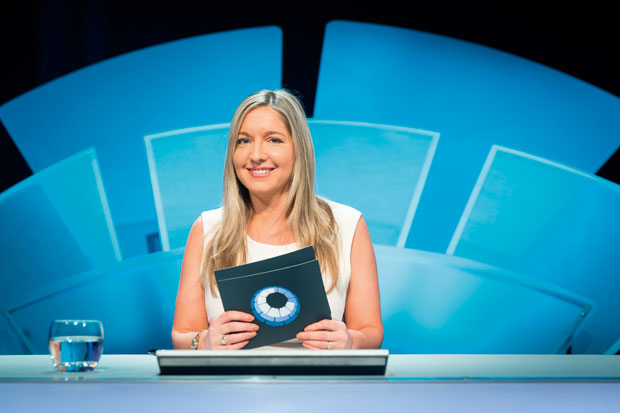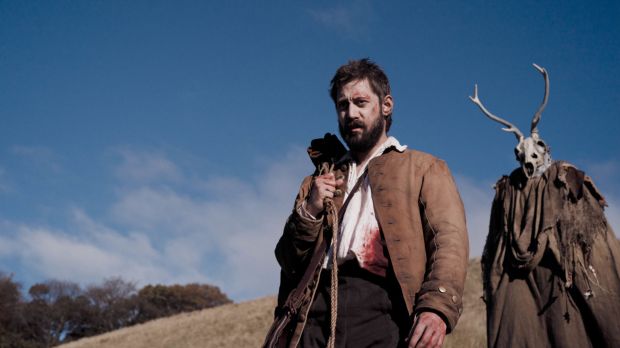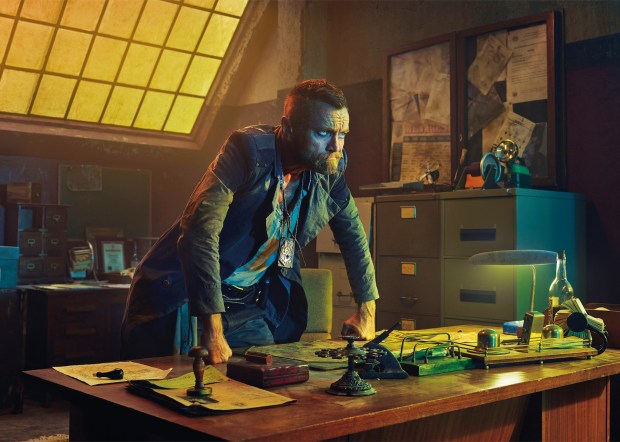For some of us, the biggest TV question of recent weeks hasn’t been how Newsnight is doing without Jeremy Paxman, British drama’s fightback against American competition or even the treatment of Diana Beard by the editors of The Great British Bake Off. Far more important is whether a small BBC4 quiz show can survive a move to BBC2 with its heroic defiance of almost all television fashions intact.
Since 2008, Only Connect has been the obvious place to head after University Challenge on a Monday night. Host Victoria Coren Mitchell achieves a neat balance between mild self-satire and an unashamed pride in the show’s cleverness. (More oddly, she also pretends to be a fearful boozehound.) The contestants, in two teams of three, are mostly middle-aged blokes with specs and a wide range of impeccably eccentric hobbies. In their quest to work out the links between apparently unrelated things, they’re required to know about anything from the works of Homer to the finer details of Sex and the City.
In series one and two, the six questions on offer in the opening rounds were labelled with the first six letters of the Greek alphabet. But then Coren announced that this was a bit pretentious, and that the programme would now use ancient Egyptian hieroglyphs instead. (‘The horned viper, please, Victoria.’) Nonetheless, it’s the third round that has become the show’s centrepiece. In the ‘connecting wall’ the teams have to sort 16 words, names or phrases into four discrete groups of four, even though several of the 16 could fit into more than one category. (You can play these walls for yourself on the show’s website — although this is so addictive that my advice is not to start late at night if you need to be up in the morning.) The result is the kind of programme that creates an instant bond between any fans who happen to bump into each other at parties.
But now that Only Connect has become the TV equivalent of a cult indie band signing for a major record label, can it avoid selling out? Happily, after two episodes, the signs are distinctly promising. On Monday, Victoria introduced, among others, the bespectacled Rob, ‘a company director and qualified lion-tamer, with degrees in linguistics, art history and philosophy’; the bespectacled Craig, ‘a computer programmer with an interest in classical history who enjoys fantasy sports competitions’; and the bespectacled Justin, ‘a history graduate who boasts a significant collection of dog figurines’. The questions expected the teams to know that there was no Pope John XX (even though Pope John XXI thought there had been), that Emberiza citrinella is the Latin name of the yellowhammer and the precise order of both Dante’s circles of hell and the things the Romans did for us in Life of Brian. Victoria duly signed off by saying that ‘the next confrontation will be between host and wine glass’.
As with most cult indie bands, any long-time fans might feel a little uneasy about Only Connect’s new-found prominence. Still, so far at least, it looks as though they needn’t worry about the selling-out bit.
And while we’re on the subject of television that largely consists of people sitting behind desks talking I might as well confess my love of panel shows: not something I readily admit when talking to other TV critics. True, Mock the Week is reliably annoying, with its belief that jokes about Eric Pickles being fat, Nick Clegg being Cameron’s tea-boy and so on are always fresh, perceptive and funny. (Even more annoying is the fact that its audience seems to agree.) On the other hand, there’s QI, Have I Got News for You and, I’m beginning to think best of all, Would I Lie to You? (BBC1, Friday), now back for another series.
Nothing about the show scores highly for originality. The format — people say things about themselves and the other team has to work out whether they’re lying or not — clearly owes a heavy debt to Call My Bluff. The team captains, in this case David Mitchell and Lee Mack, provide the usual Hislop–Merton contrast between a posh guy out of touch with popular culture and a working-class oik, both playing their roles to the exaggerated hilt. Fortunately, though, the combination works perfectly. For the sheer speed of his comedy brain, the old-school Mack is now rivalled only by Frank Skinner — making him a perfect foil for Mitchell’s more cerebral but equally funny forensic approach. Unlike the contestants on, say, Mock the Week, everybody involved also seems to be enjoying themselves.
Finally, a quick mention for The Suspicions of Mr Whicher (Sunday) — ITV’s occasional series based on the Victorian detective still credited to Kate Summerscale’s book of the same name, even though he existed in real life. Rather like Whicher himself (Paddy Considine), Sunday’s episode was good-hearted and slightly plodding, with a touch of melancholy. After all the controversies this year about inaudible dialogue in period dramas, the good news was that you could hear every word. The bad news was that the lighting was so dim you couldn’t see very much.
Got something to add? Join the discussion and comment below.
Get 10 issues for just $10
Subscribe to The Spectator Australia today for the next 10 magazine issues, plus full online access, for just $10.
You might disagree with half of it, but you’ll enjoy reading all of it. Try your first month for free, then just $2 a week for the remainder of your first year.














Comments
Don't miss out
Join the conversation with other Spectator Australia readers. Subscribe to leave a comment.
SUBSCRIBEAlready a subscriber? Log in